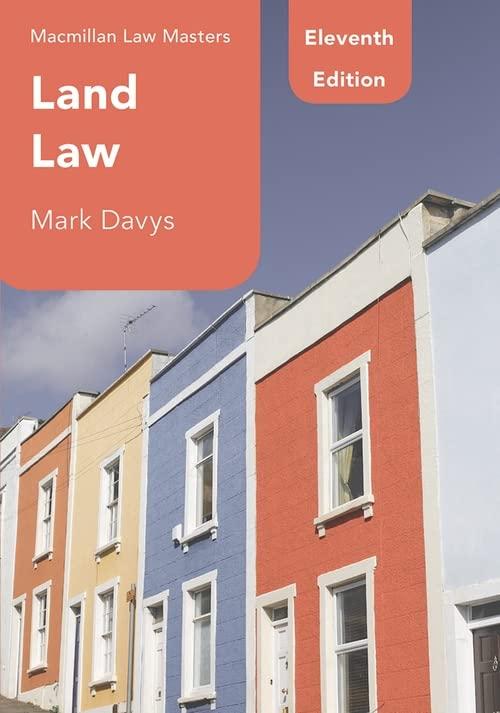Question
1. In order to be actionable under Rule 10b-5, misstatements or omissions must be made with ______. A. negligence B. lack of due care C.
1. In order to be actionable under Rule 10b-5, misstatements or omissions must be made with ______.
A. negligence
B. lack of due care
C. scienter
D. recklessness
2. A(n) ______ period is any period longer than three business days during which ______ of the participants in a retirement plan are prevented from trading.
A. loss causation; 80%
B. scheme liability; 25%
C. blackout; 50% or more
D. stock parking; 80%
3. The _______ requires that officers and directors not take personal advantage of a desirable business investment that rightfully belongs to the corporation.
A. right of first refusal
B. corporate opportunity doctrine
C. line of business test
D. expectancy test
4. In most corporations a director could be elected as long as he or she received a ______ of the votes cast for any nominee, without regard to the number of votes withheld; but more recently, the process in which a director must receive a _______ of the shares voted to be elected has become more prevalent.
A. proxy; majority
B. quorum; proxy
C. plurality; majority
D. quorum; plurality
5. If an issuer wanted to raise $100 million, and offer the issuing company's securities to no more than 35 unaccredited investors and an unlimited number of accredited investors, an issuer would choose to exempt the offering under the _______ exemption.
A. Rule 506
B. Rule 504
C. Rule 505
D. Private Placement
6. A(n) ______ loan is one in which the original lender sells shares to other parties.
A. master
B. syndicated
C. participation
D. attached
7. Which of the following is NOT true regarding the misappropriation theory of insider trading?
A. If a trader discloses to a source of nonpublic information that he or she plans to trade on the basis of that information, there is no violation under the misappropriation theory.
B. Liability under the misappropriation theory requires deception.
C. The misappropriation theory widens the class of persons who can be found liable for insider trading.
D. The trader cannot be held liable unless he or she is an insider of the company whose securities are traded.
8. Under Section 16(b) pertaining to short-swing profits, a person will be considered a(n) ______ of any securities held by his or her immediate family or any other relative living in his or her household.
A. family owner
B. beneficial owner
C. actual owner
D. imputed owner
Step by Step Solution
There are 3 Steps involved in it
Step: 1

Get Instant Access to Expert-Tailored Solutions
See step-by-step solutions with expert insights and AI powered tools for academic success
Step: 2

Step: 3

Ace Your Homework with AI
Get the answers you need in no time with our AI-driven, step-by-step assistance
Get Started


